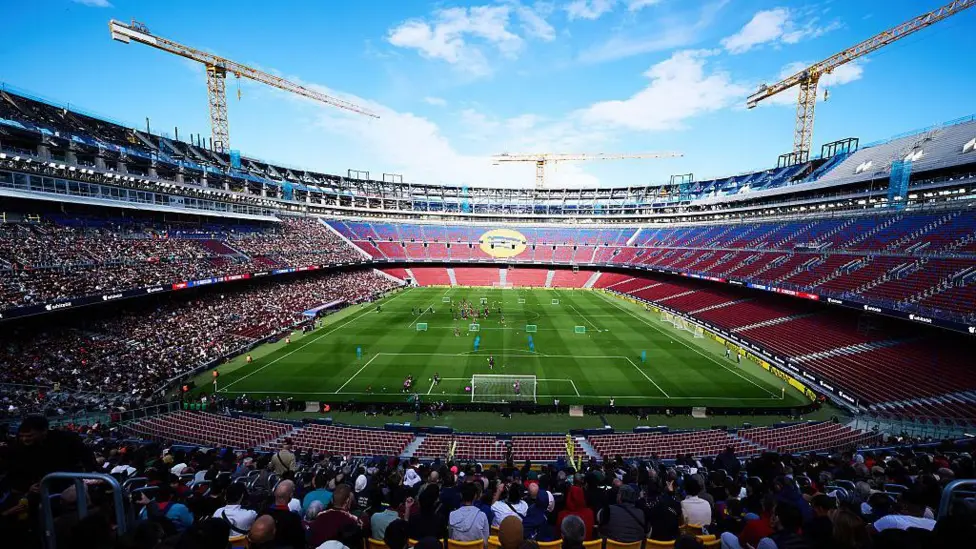Barcelona will finally return to the Nou Camp this weekend, ending a two-and-a-half-year exile from their historic home. The Catalan giants will host Athletic Club on Saturday, 22 November, in what marks their first official match at the stadium since 28 May 2023. The long-awaited comeback follows a partial reopening of the ground, which has been undergoing one of the most ambitious renovation projects in European football history.
The Nou Camp, originally opened in 1957, has been a symbol of Barcelona’s identity for decades. But in May 2023, the club closed the stadium to begin a massive modernisation project worth about £1.1bn. The aim: to transform the ageing arena into a state-of-the-art venue with a capacity of 105,000, making it one of the largest and most technologically advanced stadiums in the world.
The renovation was designed not just to expand the seating but to overhaul infrastructure, improve fan experience, and increase revenue streams. Plans included a new roof, updated VIP areas, improved accessibility, and advanced sustainability features. The club had initially hoped to return in November 2024, perfectly timed with Barça’s 125th anniversary celebrations. However, as with many large-scale construction projects, delays were inevitable.
From June 2023, Barcelona relocated to the Estadi Olímpic Lluís Companys, a 55,000-seat venue on Montjuïc hill. While the stadium served its purpose, it never captured the essence or atmosphere of the Nou Camp. Crowds were often subdued, travel was less convenient, and players occasionally commented on the challenges of adapting to a temporary home. The club also had to play two matches this season at the much smaller Johan Cruyff Stadium—home to the women’s team—due to complications in securing safety permits for parts of the Nou Camp during construction.
Now, despite ongoing work, the Nou Camp is ready to welcome fans again, albeit with a reduced capacity of 45,401. This partial reopening will allow supporters to return while renovations continue on upper tiers and facilities. The club has emphasised that the stadium is fully compliant with safety regulations for hosting domestic matches.
“Barcelona celebrates being able to compete again at its stadium and continue advancing in the comprehensive transformation project of the new Camp Nou,” the club said in a statement. The excitement among fans has been palpable, with many eager to once again fill the stands of the iconic ground, even if only partially.
Barcelona are also in discussions with Uefa regarding next week’s Champions League tie against Eintracht Frankfurt. While the club hopes to stage the European fixture at the revamped venue, they are still awaiting formal approval. If granted, it would accelerate the Nou Camp’s full competitive comeback.
The significance of this return cannot be overstated. For two years, Barcelona have navigated a period of major transition—financial challenges, squad changes, managerial shifts, and the logistical hurdles of playing away from their traditional home. A return to the Nou Camp signals stability, renewal, and a step toward the future the club envision.
Despite the reduced capacity, the symbolism of playing again at the Nou Camp will resonate deeply with players and supporters alike. The stadium has witnessed countless historic moments—from European triumphs to the artistry of football’s greatest icons. Saturday’s match may not have the full roar of 99,000 fans, but the emotional weight of the occasion will be immense.
As work continues toward the stadium’s full completion, estimated for the coming years, Barcelona’s return marks the beginning of a new chapter—one that blends the club’s rich history with modern ambition. For now, just stepping back onto familiar ground is a victory in itself.



